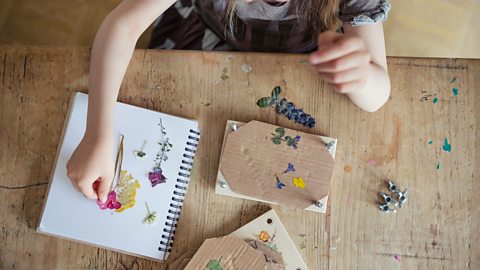What is mental health?

Mental health is how we feel, think, and act. Just like we care for our bodies, we also need to care for our minds.
Feeling happy, excited, or calm means our mental health is good. But it's okay to feel sad, worried, or angry sometimes—everyone does!
In 2025, Children's Mental Health Week is the 3rd - 9th February.
It's important to talk about how we feel, ask for help, and do things that make us feel better. This pack will show you ways to take care of your mental health!

Mental and emotional wellbeing
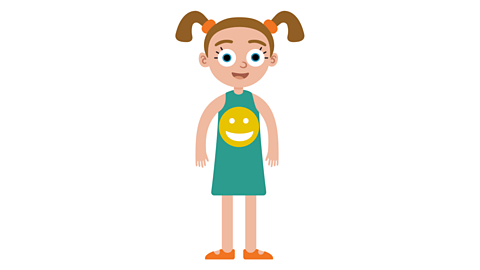
You may not always feel happy and calm all of the time. It is normal to sometimes feel sad, stressed or worried.
What can I do if I feel stressed or anxious?
If you feel stressed or anxious, speak to a friend, parent, carer or teacher about how you are feeling. There are also steps you can take to feel calmer such as:
Breathing exercises
Doing a relaxing activity such as mindful colouring
Spending time in nature
If you feel low, you can do things to boost your mood by doing things you enjoy such as:
Spending time with friends or family
Listening to music
Singing
Watching a comedy show
Here is a collection of films to help you practise mental and emotional wellbeing skills.

Mental and emotional wellbeing collection
Bitesize: 2nd level Health and Wellbeing .Ages 9-12
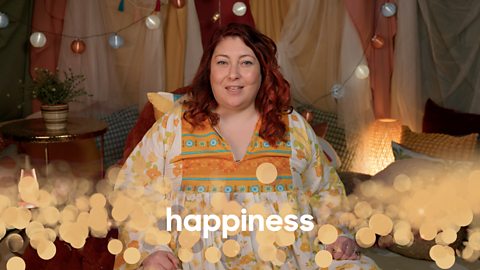
Mindful activities
Mindfulness is about focusing on the present moment, instead of worrying about the past or future. It helps reduce stress and anxiety by helping you pay attention to what's happening right now, rather than what might be worrying you.
What kind of mindful activities are there?
- Yoga
- Tai chi
- Colouring
- Drawing
- Painting
- Doing a jigsaw puzzle
- Gardening
You could try out different activities to find out which you enjoy most and which helps take your mind off things.
Mindful colouring - a Talavera tile
Bitesize: KS2 Primary
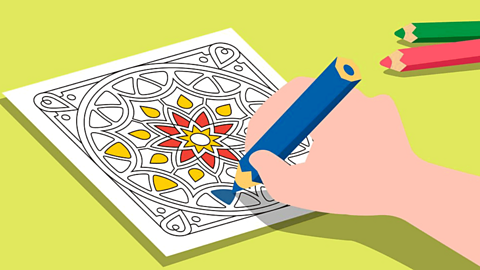
Eating well
Feeling physically healthy can often impact your mental health. It is not just exercise than can help you feel good. There are other steps you can take to help such as:
Getting enough sleep
Eating healthily
Drinking enough water
Cooking and nutrition: What are nutrients?
Bitesize: KS2 Design and Technology
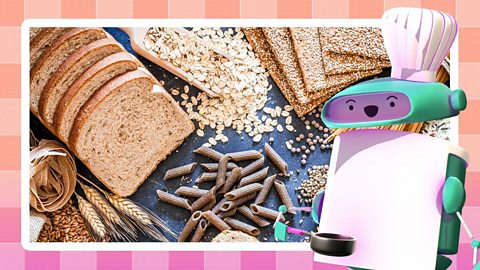
Cooking and nutrition: Why do people need energy?
Bitesize: KS2 Design and Technology
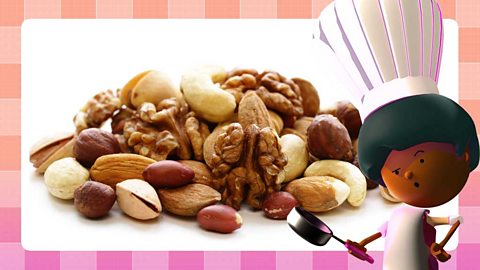
Cooking and nutrition: Understanding food labels
Bitesize: KS2 Design and Technology
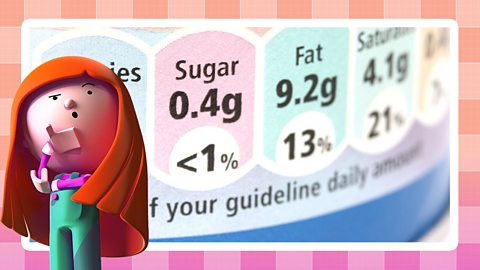
The effects of diet, exercise and drugs on the body
Bitesize: KS2 Science
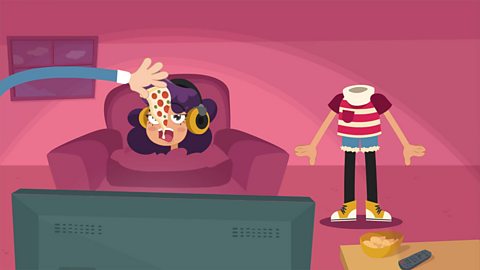
Staying active
Moving can boost your feel good hormones too, which will make you feel more positive. You could try:
Going for a walk
Dancing
Following an exercise video
Playing a team sport
Super Movers PSHE Collection
BBC Teach: Super Movers PSHE Collection

Family Moodboosters
BBC Teach: Moodboosters

Super Movers for Every Body
BBC Teach: Super Movers for Every Body
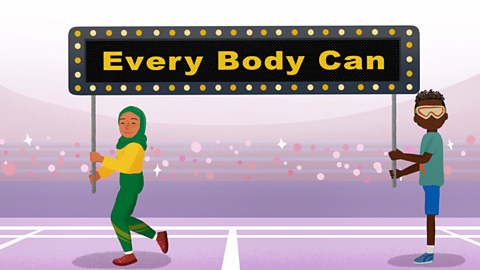
School
Friendships
Connecting with others is good for your wellbeing because it helps you feel like you belong. At school, you can make friends with classmates who share your interests. Friends support and encourage each other.
Joining activities, like after-school clubs, helps you meet new people and make friends. Sometimes, nasty comments or bullying can affect confidence and wellbeing, so it’s important to talk to a trusted adult for support.
What is discrimination?
Bitesize: KS2 Citizenship
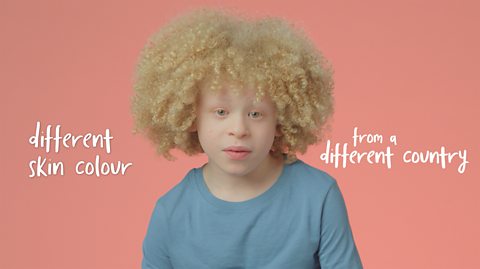
Managing conflict
Bitesize: KS2 PDMU
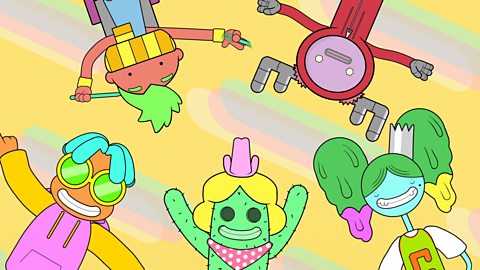
More from Personal Development and Mutual Understanding - All about me
Bitesize: KS2 PDMU

Coping with exam stress
Some aspects of school can be stressful. For example, having to do exams or tests. These can seem scary at the time but it's important to not to worry too much and remember to look after yourself.
Speak to friends and family if you're feeling overwhelmed.
Discover some top tips to support you with SATs.
KS1 SATs and KS2 SATs
Bitesize

KS2 English SATs revision - Grammar, punctuation, spelling
Bitesize: KS2 Revision

SATS top tips and advice
Newsround
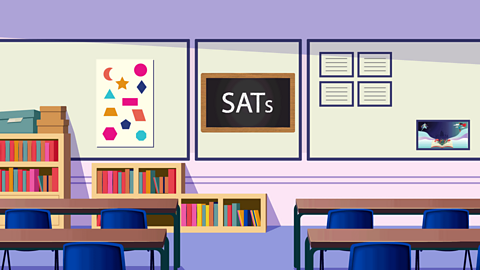
Leaving primary school
After making friends in primary school, the thought of leaving primary and moving to secondary school might make you feel a little worried.
Change can be unsettling but it can also be a chance to meet new people and learn new things.
Here is some information about what to expect and what the main differences are between primary and secondary school.
Transition to secondary school
Bitesize: KS2 PDMU
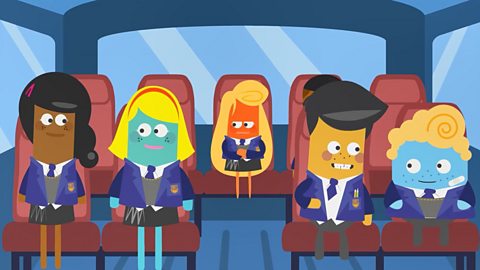
Health and wellbeing with the wider BBC
Discover more videos and resources about mental health and wellbeing from around the BBC.
What is anxiety?
BBC Newsround
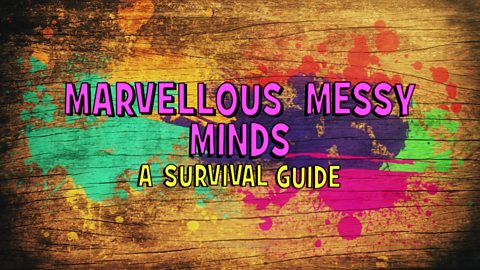
What is depression?
BBC Newsround
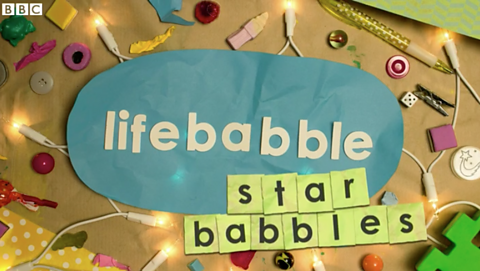
Physical and mental wellbeing
BBC Teach: KS2 PSHE

An exploration of mental health issues
BBC Teach: KS2/KS3 PSHE
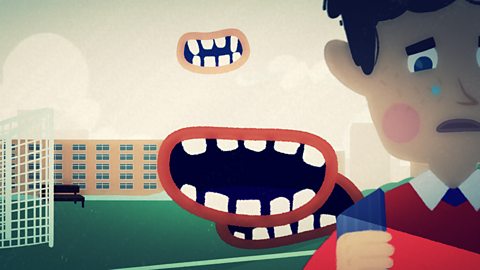
Health and Well-being
BBC Teach (Wales) • Ages 8-11
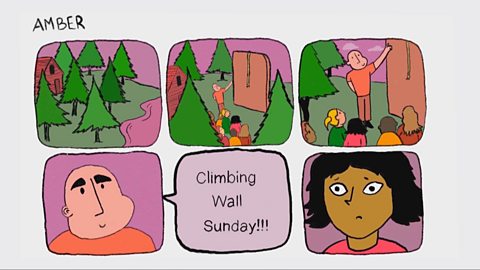
Support for Parents
Wellbeing tips for parents to help you support a healthy, happy childhood - with advice on food, sleep, mindfulness, as well as ways to look after you and your child's mental health.
Parents' Toolkit - Wellbeing
Bitesize: Parents' Toolkit
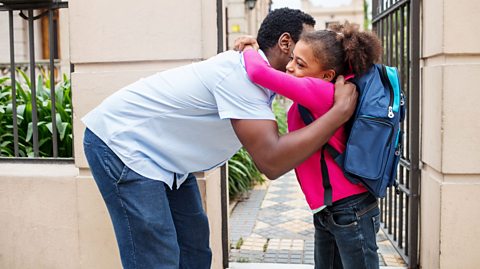
Five ways to incorporate mindfulness into your child's day
Bitesize: Parents' Toolkit
